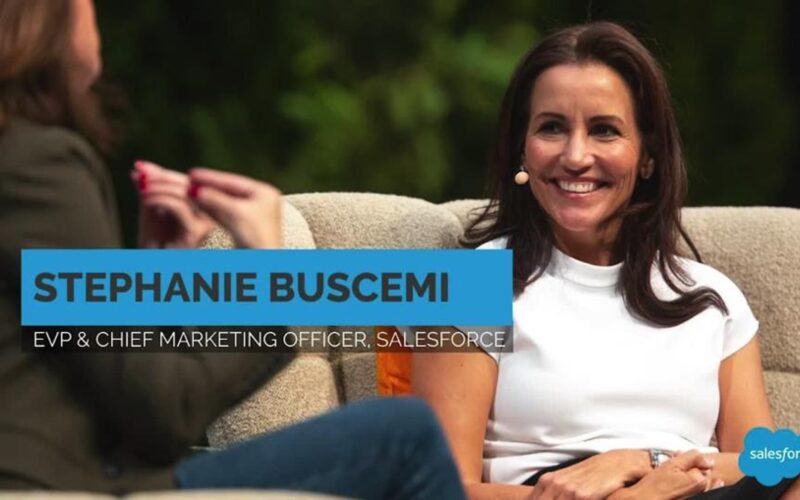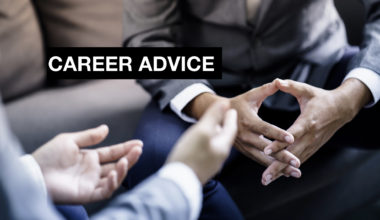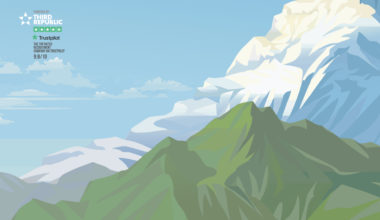The ancient slave turned Greek philosopher Epictetus reminds us that “we have two ears and one mouth so that we can listen twice as much as we speak.” It’s refreshing to meet a company whose leaders embody this ideal, especially in these trying times.
This month I sat down with Stephanie Buscemi, the marketing leader for one of the most iconic brands in the digital age, Salesforce. It’s true that empathy is a key ingredient in leading others through a crisis, but what struck me most was what they did to gain empathy. Listen to employees. Listen to customers. Listen to partners.
The power of listening is central to Salesforce’s key value of “Equality,” which is defined by “ensuring that all voices are welcome and heard to increase our awareness of what is possible.” While others may miss the mark on living their values (a.k.a “The Inauthentics”), the practice of listening grounds Salesforce in their values while keeping them relevant for the future.
Soon Yu: How is Salesforce responding to the set of crises that we’re facing right now?
Stephanie Buscemi: You’re right. It’s plural, crises. The pandemic had already created so much pain, loss, and grief around the world, and now, that pain, loss, and grief is compounded and heightened with racial injustice and a spree of senseless killings of George Floyd, Breonna Taylor, Ahmaud Arbery among many others. Our Black community is grieving right now and rightfully so, after a reality of allowed systemic racism for hundreds of years. Now is the time to confront it by leading with empathy, open ears to listen deeply, and action, even though we are already so raw due to the pandemic. While I always try to find the silver lining, even in the worst situations, I believe that people are awake and ready to take action for change. There is simply no finish line when it comes to equality and we are far from done, but, I’m a firm believer that there is power in our storytelling, our communities, our partnerships, and ultimately unity.
At Salesforce, our CEO Marc Benioff says, and we believe this deeply, that business is a platform for change. We lead with brand values, in action, to better understand and connect with communities. That embodies the way we engage our community, our customers, our partners, everyone. We believe that it’s the responsibility of businesses to lean in and drive for a better world in the communities that we operate and societies in which we operate. We feel it’s our responsibility to look after our stakeholders, not just our shareholders and this is no exception to that. Recently, Mellody Hobson, president, and co-CEO of Ariel Investments joined one of our Leading Through Change episodes and encouraged us to focus on three areas that address the many intersecting crises, including people, purchasing, and philanthropy. That really resonated with us as a way to frame our actions, and we added one more area — policy. So we’ve established a Racial Equality and Justice Task Force to address these four areas.
- People: Our primary focus is standing with and supporting our Black employees in this time of incredible grieving, pain, and loss. We’re bringing together our Black community and allies to create conversations, to acknowledge the pain, to listen in silence, and to acknowledge and honor lost lives. Our Leading Through Change series started at the beginning of COVID-19 as a crisis response tool to help share best practices for navigating the pandemic. We talked with business owners, entrepreneurs, and experts in the medical field. Now, Leading Through Change has evolved as we stand alongside our Black community with focused episodes and topics that address our key areas of action. BOLDforce, our Black employee resource group, also offered immediate actions we can all take and hosted an Equality Circle for the Black community and allies to share their stories, experiences, and support for each other. We recently brought conversations to action, by merging recruiting and equality in Tony Prophet’s new role as our Chief Equality and Recruiting Officer to foster an inclusive lens at each step in our hiring process, reinforcing our effort to build a workplace that reflects the communities we serve.
- Philanthropy: We’re making philanthropic grants to combat racism, violence, and hate. People want to do more with a focused effort. We donated $1 million to the NAACP to support the fight for racial equality and justice in America. Last month, we partnered with the Black Entertainment Network and United Way on their relief fund, donating $500,000 to help Black American families that have been most impacted by the crisis. As part of our efforts to combat the COVID-19 crisis, we are continuing to do our part to deliver over $25 million of PPE to communities, including those underserved.
- Purchasing: How can we, as a platform for change, help influence purchasing power to support Black-owned businesses and entrepreneurs? Our Head of Strategic Procurement, Craig Cuffie, is working with our supplier diversity team to shift our focus from “counting spend” to “counting impact” to create more opportunities in the communities where we do business. And, our Salesforce Ventures team will continue to invest in and empower, innovative Black founders through funding, guidance, sponsorships, and events. We believe in the power of the dollar and purchasing power that drives our supplier community and will make sure we’re putting money behind Black-owned and led businesses.
- Policy: While we take action internally we also need to be part of broader solutions across our society. We are working hard to ask ourselves what responsibility we have when it comes to our technology. The task force is assembling an advisory panel of experts from inside and outside of Salesforce to inform how best to support our employees and to advocate for public policy reforms on critical areas, such as policing, hate crimes, and criminal justice.
Yu: During these times of crisis, how has the brand DNA and specifically your values (trust, customer success, innovation, equality) helped guide you?
Buscemi: Our brand values are the compass that guides us in every decision, whether it’s a big decision or a small one. I like to think of it as a muscle. Those brand values were established when the company started 21 years ago and I can tell you with confidence that they’re not a hype thing at Salesforce. Those values are grounded in every conversation, and I don’t mean just as a marketing exercise, I mean across every single thing that we do: product decisions, investment decisions, people decisions, process decisions, across the board. Any time you have a crisis, any time you have a change, the trade-offs will be tested. We’ve had to look deeply at our values through the pandemic and realized that customer success was our focus from the early crisis phase, to stabilizing, reopening, and will continue to be when we ultimately get back to growth.
For example, we had this amazing innovation roadmap that defined our fiscal year based on deep listening from focus groups, customers and prospect insights, and had to pause for a moment to say, “The world pretty much changed almost overnight…are these still the right things? Is this what our engineers should wake up to every morning? Is this a priority for our product leaders?” We could have stayed the course, but instead, we looked at our values, and it became clear that we wanted our customers to remember us as a partner once we come out on the other side of this. We launched, in about six weeks after that, Work.com, a destination for best practices, advisory and consulting services, new products, and applications to help you reopen your business safely. If customer success was our focus, we knew our communities needed a fast, innovative roadmap through so much change. We set out to help our customers today, tomorrow, and next month to care for their employees and customers and protect the growth of their businesses. As a result, we’ve built an employee-response-management application, a contact-tracing application, and a shift-management application. All things I’m sure our engineers never believed they would be building. There is an intense pride and sense of purpose in our teams after coming together so quickly to pivot successfully.
Yu: During times of crisis, what do you think the CMO’s role is, both inside the organization and outside the organization?
Buscemi: I think our job is to galvanize and bring our community together. At Salesforce, our community, we call them Trailblazers, truly co-innovate with us. I see my role as a connector and driver behind an engaged community, especially through chaotic times. While each CMO’s community and therefore their specific needs may be different, the way you connect with the community is not. It’s all about storytelling. While our stories have changed a bit, people still need equal parts inspiration and very pragmatic, practical action. So much has worn on us over the recent weeks and months, that our audiences are craving inspiration to keep them going with very actionable, relevant, practical things they can do right now. It would be tone-deaf to start talking about a two-year roadmap to digital transformation. I like to focus on “base hits” or quick wins. Communities are looking for content that helps, inspires, teaches, etc. Marketers must understand that and change their storytelling accordingly. As marketers, we have a responsibility to elevate diverse voices, bring in new faces as role models, decrease cultural bias, and ultimately lead through positive change.
Yu: Over the past 20 years, Salesforce has created an iconic brand that is the standard-bearer for cloud-based CRM. How will the brand, and what makes it iconic, evolve over the next 10-20 years?
Buscemi: I think a lot remains unknown. I believe that human connection will persist and there will always be a need and longing for true connection with one another. This pandemic is a full demonstration of that. We just aren’t made for isolation. Even though we’re moving towards a more digital world, the human connection will always persist. As CMOs, you will have to figure out how to continue to build and strengthen those human elements of connection. A good example of this is the first event we held during the pandemic, Salesforce World Tour in Sydney, only 10 days in. We pivoted and reworked a live event with 10,000 people to retrofit it into a virtual event. While we successfully had over 80,000 people join, it was a retrofit. It wasn’t designed from the ground up for virtual engagement – and we learned a lot. Now, with more virtual events under our belt, I can say I strongly believe that we will lean into smaller engagements versus large events, because you have to be able, in a virtual setting, to pause and engage with each other. We see value in 10 to 12-person events that allow for unique opportunities to connect in fun ways and engage virtually. People are far more energized when they aren’t just sitting, staring at a screen all day. We used to have a two-hour Dreamforce keynote but now we are looking at how we cut that down to less than an hour virtually.
I truly think in the next 10-20 years human connection will still be the Holy Grail of how CMOs make meaningful campaigns and content. When the tactics, marketing playbook, and plans are out the window, all bets are off. Brands that stand out, truly listen and have meaningful conversations to co-create alongside their communities. I think we’ll see more brands leaning into true human connection and empathy to create and cultivate communities around shared values.
For the full article click the link below.


